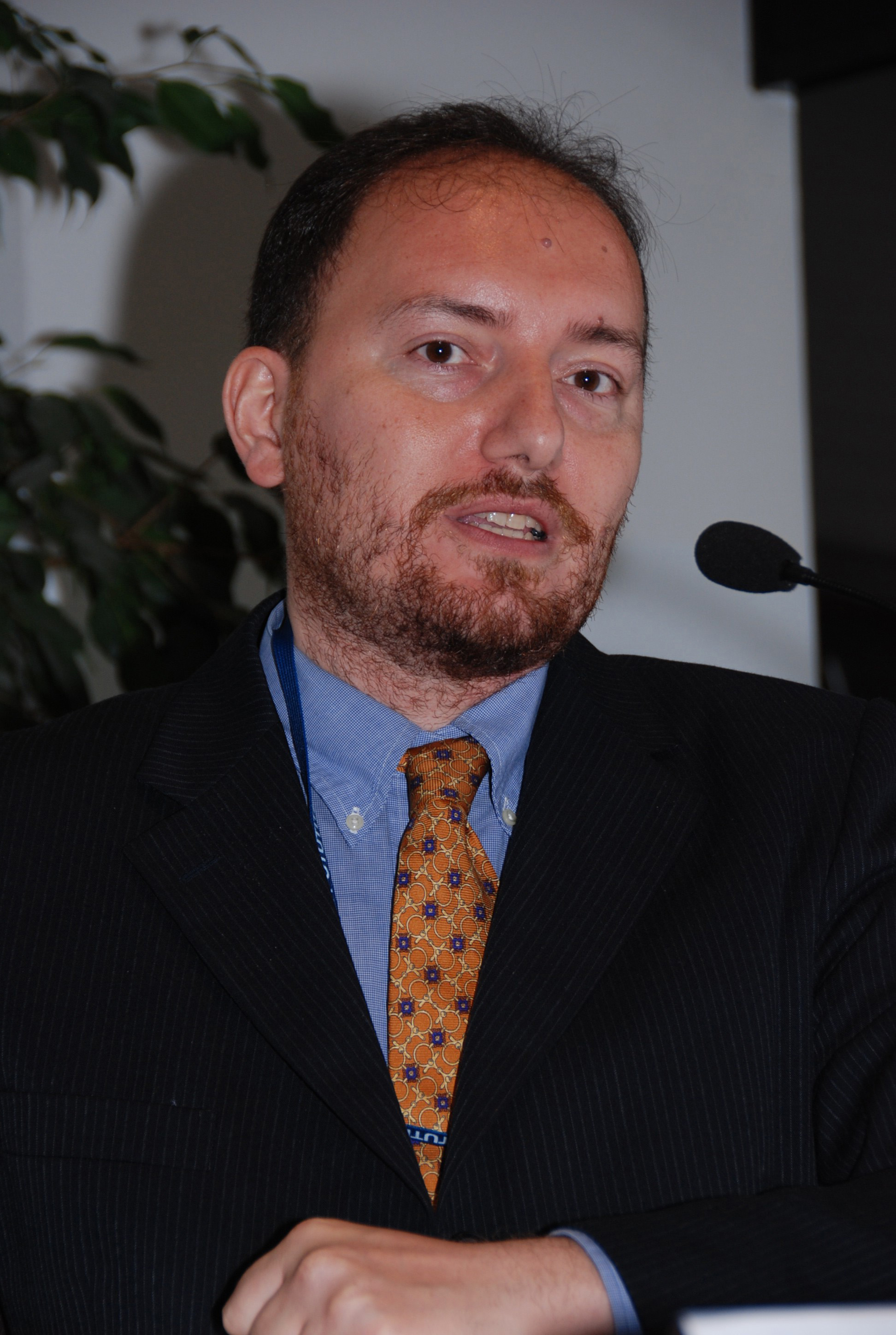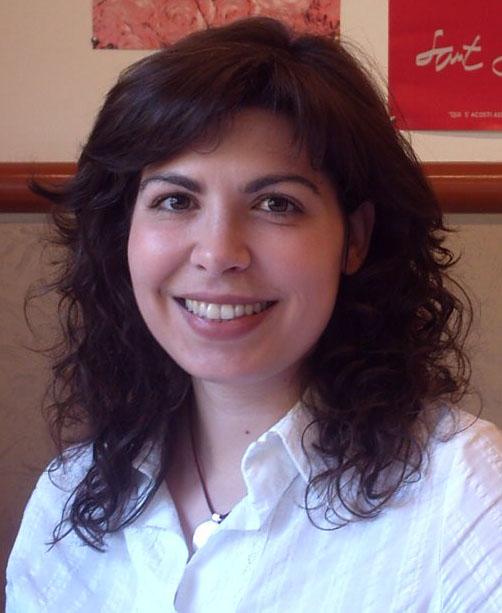We are delighted to welcome four distinguished plenary speakers at the VECTOR workshop: Prof. Giuseppe Riva (Università Cattolica del Sacro Cuore), Prof. Marta Ferrer-García (University of Barcelona), Prof. Valerie J. Shute (Florida State University), and Mareike Gooßes (University of Cologne). The keynote lectures are scheduled for Thursday and Friday (see the program).
Prof. Giuseppe Riva Università Cattolica del Sacro Cuore
 Giuseppe Riva is a professor for General Psychology and Communication Psychology at the Catholic University of Milan and head researcher of the Applied Technology for Neuro-Psychology Laboratory (ATN-P Lab).
He pioneered the application of Virtual Reality and internet technology for the treatment of different psychological disorders, as well as the application of Virtual Reality in psychological and neurophysiological assessment and rehabilitation.
Already in 1997 he published a textbook on the prospects of VR technologies for the field of health care in general.
His work largely contributed to the emerging field of Cyberpsychology by integrating research from the fields of ergonomics, cognitive science, computer science and psychology.
As the president of the International Association of CyberPsychology, Training, and Rehabilitation (iACToR), Giuseppe Riva promotes the development of the field and the distribution of innovative health care approaches.
Besides his research on VR applications in health care, Giuseppe Riva investigated the neuropsychological foundations of the sense of presence - the sense of being there - experienced by users during VR exposure.
With his work he led the basis for an action-centered understanding of presence as an interface between intentionality, perception and action.
Furthermore, he addressed the affective immersion in virtual realities, by investigating the relation between presence and emotion.
Giuseppe Riva's work on VR, health care, and human computer interactions has been published in over 500 articles in international, peer-reviewed journals.
In his current projects, Giuseppe Riva investigates how to integrate emotional processing into user interface design, the role of disturbed multisensory integration processes in the development of eating disorders, and the prospects of gamification in educational and therapeutic settings.
Giuseppe Riva is a professor for General Psychology and Communication Psychology at the Catholic University of Milan and head researcher of the Applied Technology for Neuro-Psychology Laboratory (ATN-P Lab).
He pioneered the application of Virtual Reality and internet technology for the treatment of different psychological disorders, as well as the application of Virtual Reality in psychological and neurophysiological assessment and rehabilitation.
Already in 1997 he published a textbook on the prospects of VR technologies for the field of health care in general.
His work largely contributed to the emerging field of Cyberpsychology by integrating research from the fields of ergonomics, cognitive science, computer science and psychology.
As the president of the International Association of CyberPsychology, Training, and Rehabilitation (iACToR), Giuseppe Riva promotes the development of the field and the distribution of innovative health care approaches.
Besides his research on VR applications in health care, Giuseppe Riva investigated the neuropsychological foundations of the sense of presence - the sense of being there - experienced by users during VR exposure.
With his work he led the basis for an action-centered understanding of presence as an interface between intentionality, perception and action.
Furthermore, he addressed the affective immersion in virtual realities, by investigating the relation between presence and emotion.
Giuseppe Riva's work on VR, health care, and human computer interactions has been published in over 500 articles in international, peer-reviewed journals.
In his current projects, Giuseppe Riva investigates how to integrate emotional processing into user interface design, the role of disturbed multisensory integration processes in the development of eating disorders, and the prospects of gamification in educational and therapeutic settings.
Prof. Marta Ferrer-García University of Barcelona
 Marta Ferrer-García is a professor at the Department of Clinical Psychology and Psychobiology at the University of Barcelona, researcher of the Laboratory of Virtual Reality at the Faculty of Psychology (VR-Psy Lab) and member of the Institute of Neuroscience at this University. Her research projects cover the fields of clinical and personality psychology, with a special focus on eating disorders.
For over ten years, Marta Ferrer-García has been investigating the relation between body image distortions and eating disorders from different perspectives, including emotional processing, social cues, and personality traits.
From early on, Marta Ferrer-García used Virtual Reality technologies in her research, both as a tool to investigate the effect of emotional responses to body image estimations, as well as a treatment approach.
Besides eating disorders, Marta Ferrer-García applies Virtual Reality setups to investigate craving behavior for alcohol and cigarettes.
In her most recent project, Marta Ferrer-García investigates the prospects of Virtual Reality technologies for pain management for patients with chronic pain syndromes like fibromyalgia.
Marta Ferrer-García is a professor at the Department of Clinical Psychology and Psychobiology at the University of Barcelona, researcher of the Laboratory of Virtual Reality at the Faculty of Psychology (VR-Psy Lab) and member of the Institute of Neuroscience at this University. Her research projects cover the fields of clinical and personality psychology, with a special focus on eating disorders.
For over ten years, Marta Ferrer-García has been investigating the relation between body image distortions and eating disorders from different perspectives, including emotional processing, social cues, and personality traits.
From early on, Marta Ferrer-García used Virtual Reality technologies in her research, both as a tool to investigate the effect of emotional responses to body image estimations, as well as a treatment approach.
Besides eating disorders, Marta Ferrer-García applies Virtual Reality setups to investigate craving behavior for alcohol and cigarettes.
In her most recent project, Marta Ferrer-García investigates the prospects of Virtual Reality technologies for pain management for patients with chronic pain syndromes like fibromyalgia.
Prof. Valerie J. Shute Florida State University
 Valerie Shute is the Mack & Effie Campbell Tyner Endowed Professor in Education in the Department of Educational Psychology and Learning Systems at Florida State University in Tallahassee.
She is member of different academic organizations, including the American Educational Research Association and the society for Artificial Intelligence in Education.
Before coming to FSU in 2007, Valerie Shute worked as a principal research scientist at Educational Testing Service - the largest private nonprofit educational testing and assessment organization - where she was involved with basic and applied research projects related to assessment, cognitive diagnosis, and learning from advanced instructional systems.
For more than 30 years, Valerie Shute has been investigating how to design, develop and evaluate advanced learning systems to promote the development of core competencies for successful interactions in a complex and interconnected world - like creativity, critical thinking, teamwork, and communication.
She pioneered the combination of serious games and continuous, real time assessment and feedback in learning environments.
These learning environments combine interactive problem solving and adaptive challenges with ongoing feedback and allow ongoing assessment as well as accurate inferences regarding skill acquisition.
Implementations of such learning environments - like the physics simulation Physics Playground - have been shown to support learning of cognitive and noncognitive knowledge, skills, and dispositions.
Valerie Shute's research has resulted in numerous grants, journal articles, books, chapters in edited books, a patent, and a couple of recent books.
Valerie Shute is the Mack & Effie Campbell Tyner Endowed Professor in Education in the Department of Educational Psychology and Learning Systems at Florida State University in Tallahassee.
She is member of different academic organizations, including the American Educational Research Association and the society for Artificial Intelligence in Education.
Before coming to FSU in 2007, Valerie Shute worked as a principal research scientist at Educational Testing Service - the largest private nonprofit educational testing and assessment organization - where she was involved with basic and applied research projects related to assessment, cognitive diagnosis, and learning from advanced instructional systems.
For more than 30 years, Valerie Shute has been investigating how to design, develop and evaluate advanced learning systems to promote the development of core competencies for successful interactions in a complex and interconnected world - like creativity, critical thinking, teamwork, and communication.
She pioneered the combination of serious games and continuous, real time assessment and feedback in learning environments.
These learning environments combine interactive problem solving and adaptive challenges with ongoing feedback and allow ongoing assessment as well as accurate inferences regarding skill acquisition.
Implementations of such learning environments - like the physics simulation Physics Playground - have been shown to support learning of cognitive and noncognitive knowledge, skills, and dispositions.
Valerie Shute's research has resulted in numerous grants, journal articles, books, chapters in edited books, a patent, and a couple of recent books.
M.Sc. Mareike Gooẞes University of Cologne
 Mareike Gooßes is a research associate at the Department of Neuropsychology and Gender Studies, Centre for Neuropsychological Diagnostic and Intervention (CeNDI), led by Prof. Elke Kalbe at the University of Cologne.
Mareike Gooßes graduated in Physiotherapy and Experimental and Clinical Neuroscience.
In her research, Mareike Gooßes focus on the interaction between cognitive and sensorimotor functions, with a special emphasis on the plasticity of these interactions in the rehabilitation of neurodegenerative diseases, like Parkinson's disease and stroke.
In this respect, Mareike Gooßes investigates how non-pharmacological interventions, like exergaming programs, can improve learning processes in patients suffering from neurodegenerative diseases.
Mareike Gooßes is a research associate at the Department of Neuropsychology and Gender Studies, Centre for Neuropsychological Diagnostic and Intervention (CeNDI), led by Prof. Elke Kalbe at the University of Cologne.
Mareike Gooßes graduated in Physiotherapy and Experimental and Clinical Neuroscience.
In her research, Mareike Gooßes focus on the interaction between cognitive and sensorimotor functions, with a special emphasis on the plasticity of these interactions in the rehabilitation of neurodegenerative diseases, like Parkinson's disease and stroke.
In this respect, Mareike Gooßes investigates how non-pharmacological interventions, like exergaming programs, can improve learning processes in patients suffering from neurodegenerative diseases.

